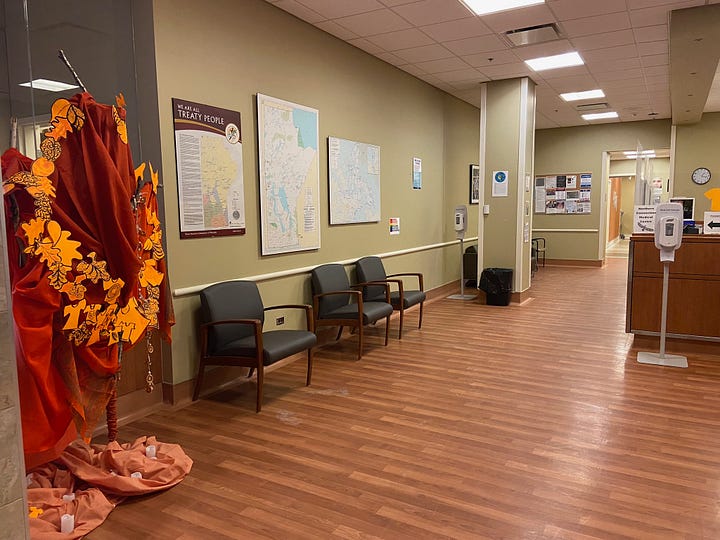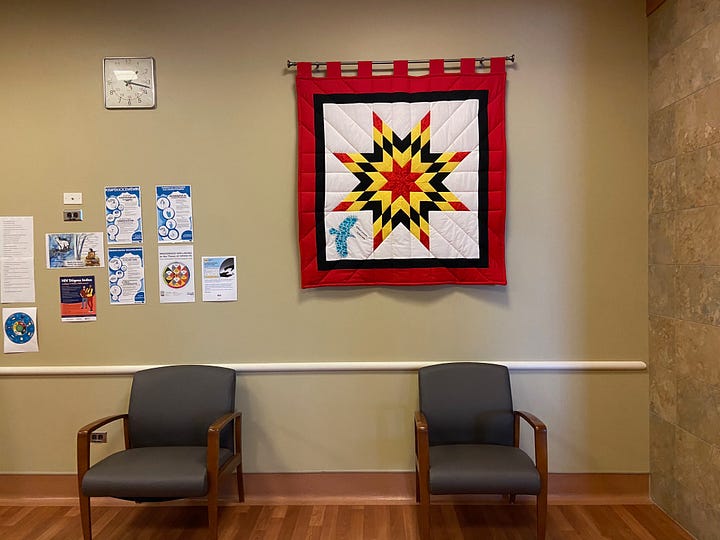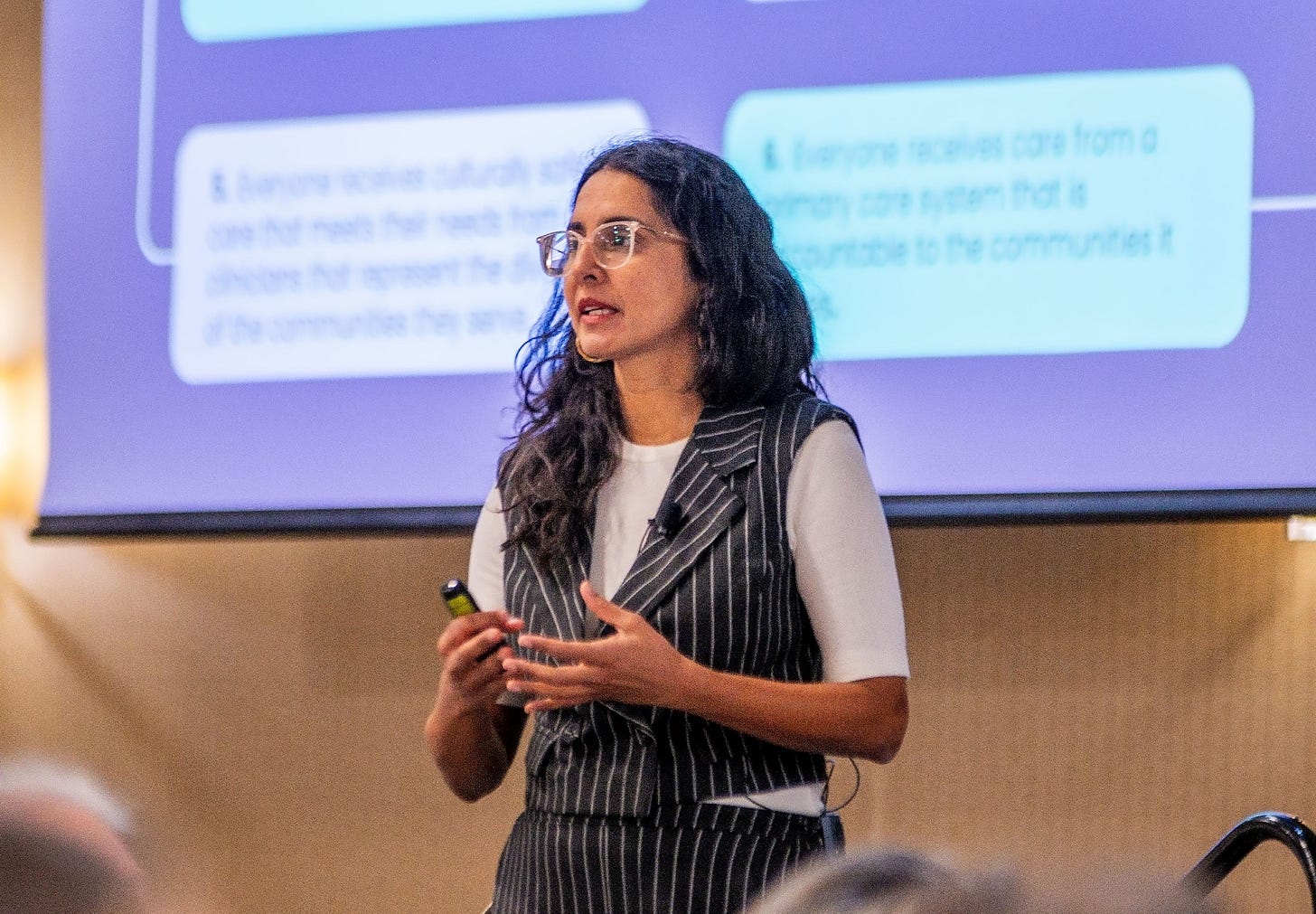Hi friends,
Thank you so much to everyone who listened to our first episode of Primary Focus, subscribed, shared your thoughts, and cheered us on. Your support has meant the world — and it’s clear that there’s a real hunger for a better primary care system in Canada.
Today, I’m excited to share Episode 2 with you!
It’s about a topic that’s absolutely essential if we are serious about fixing primary care: making healthcare better for Indigenous people.
Canada is founded on colonized Indigenous lands. Yet, our First Peoples continue to experience huge gaps in health care and outcomes. Consider these statistics compiled by the Canadian Medical Association:
In 2021, the average life expectancy for First Nations in British Columbia was 67.2 years compared to the 82.5 years for non-Indigenous residents
1 in 5 Indigenous respondents reported discrimination or racism in health care in a 2024 Statistics Canada survey
<1% of physicians in Canada are Indigenous despite Indigenous People comprising more than 4.5% of Canada’s population
We need to do better. We can do better.
In November, I had the chance to visit Winnipeg, where I spoke at their provincial Primary Care Day. It was incredible to see so many clinicians, leaders, and community members come together — not only to share ideas, but also commitment and action on doing better when it comes to Indigenous health.
That spirit of learning and accountability stayed with me as I visited the Northern Connections Medical Centre — a clinic that serves Indigenous people from the North and in Winnipeg but that also trains family doctors of the future to deliver culturally safe care.
In this episode, you’ll hear:
🏥 My tour of the Northern Connections Medical Centre
👩⚕️ A conversation with Dr. Mandy Buss, an inspiring family doctor and former president of the Indigenous Physicians Association of Canada.
🧠 Reflections on the deep and lasting impacts of colonialism on health, access to care, and healthcare paradigms—and what we can do to improve things


Here’s a quick sneak peek of Dr. Buss reflecting on the questions we need to ask ourselves when designing safe primary care spaces that meet the needs of Indigenous People:
One thing that’s been front of mind for me:
If we truly want to build a better primary care system, we need to heed the Calls to Action from the Truth and Reconciliation Commission — especially those focused on health. This means:
Increasing the number of Indigenous health professionals
Embedding Indigenous healing practices alongside Western medicine
Providing cultural safety training for all healthcare workers
And acknowledging the lasting impact of colonialism and ongoing racism and discrimination faced by Indigenous people on their health and well-being
Primary care is supposed to be the “front door” to the health system. But for too many Indigenous people, that door has never been welcoming — or even open at all. We must do better.
A few ways you can engage:
💡Read the recommendations to improve care for Indigenous People put forward by the OurCare Priority Panel in Manitoba
💬 Got an idea for a future episode? Email me at primary.focus@unityhealth.to
🌐 Subscribe to this newsletter and forward this email to someone passionate about primary care
Before you go - do you have 10-15 minutes? Take the new OurCare Survey!
In 2022, nearly 10,000 people across Canada shared their experiences with primary care in the OurCare survey. Their feedback shaped the OurCare Standard – a clear outline of what everyone in Canada should expect from the primary care system.
Now, we want to hear from you! Whether you have a family doctor or not, how does your health care measure up to the OurCare Standard? By sharing your experiences, you’ll help researchers understand what’s needed for a stronger, more equitable health care system in Canada.
Click to Take the Survey
Warmly,
Tara
Dr. Tara Kiran
Host, Primary Focus












Share this post